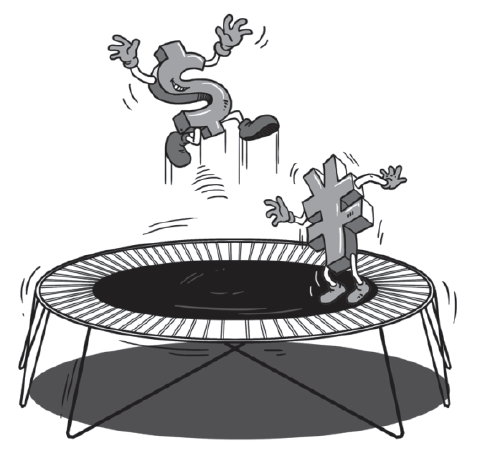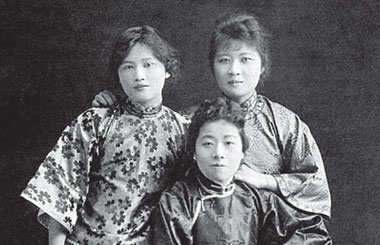Renminbi is convenient scapegoat, not culprit
Updated: 2016-06-07 07:46
By Dan Steinbock(China Daily)
|
|||||||||
 |
| LI FENG/CHINA DAILY |
The exchange rate was about 6.05 Chinese Yuan (CNY) to the dollar in January 2014. As the US Federal Reserve ended its quantitative easing and began to prepare for rate hikes, the dollar began to rise. In August 2015, it was around 6.21 CNY to the dollar and, after the subsequent renminbi devaluation, 6.36.
But after late March, the renminbi began appreciating. Moreover, after the Chinese New Year, the exchange rate has largely correlated with the US Dollar Index, which measures the value of the dollar relative to a basket of foreign currencies.
The correlation is not a surprise. The basket of the US Dollar Index currencies accounts for some 70 percent of the weights in the Renminbi Index launched in December 2015. As the renminbi is now managed via a basket of currencies, China is not unilaterally driving the renminbi weaker-despite US election rhetoric.
Today, the exchange rate is about 6.57 CNY to the dollar. After hosting the G20 Summit, the renminbi will officially join the International Monetary Fund's international currency basket in early October. It is thus very much in Chinese interests to keep the renminbi stable.
From fall 2014 to spring 2015, the US dollar strengthened significantly, as evidenced by the US Dollar Index. In spring 2016, it declined somewhat.
In January, the Fed tempered rate hike expectations citing "global risks." In late February, the G20 countries agreed to move away from relying too heavily on zero-bound interest rate policies to support growth. After these two measures, the markets began to improve significantly.
However, rate hike speculation has returned in the past few weeks. As a result, economic uncertainty is increasing and market volatility climbing. However, that is not driven by the renminbi, but uneasy labor markets in the US, rising global uncertainty and the Fed's accompanying ambivalence.
If the Fed increases interest rates prematurely, the collateral damage will not be just domestic but global. In this scenario, the renminbi is not the appropriate culprit but a convenient scapegoat.
The author is the founder of Difference Group and has served as research director at the India, China and America Institute (USA) and visiting fellow at the Shanghai Institutes for International Studies (China) and the EU Centre (Singapore).
Related Stories
China makes progress in exchange rate flexibility: US Treasury official 2016-06-02 09:48
China to keep RMB exchange rate generally stable: report 2016-03-05 09:38
China reaffirms stable exchange rate, moving forward structural reform 2016-02-29 23:23
Linked exchange rate system is still best for HK's economy 2016-01-28 08:42
Today's Top News
Former PM warns of chaos in case of Brexit
Basic income plan rejected by Swiss voters
Eyeing the goal in European football
Suddenly, it's a small world
China looking forward to trade talks with EEU: MOC
Russia to promote EAEU-China economic cooperation
AIIB 'set to earn international trust, credibility'
EIB and AIIB to strengthen cooperation
Hot Topics
Lunar probe , China growth forecasts, Emission rules get tougher, China seen through 'colored lens', International board,
Editor's Picks

|

|

|

|

|

|







